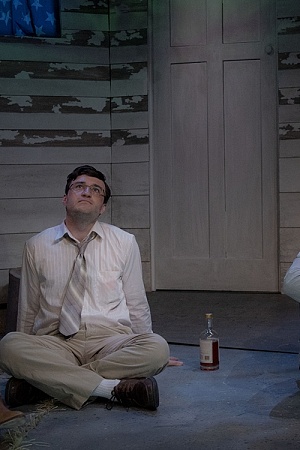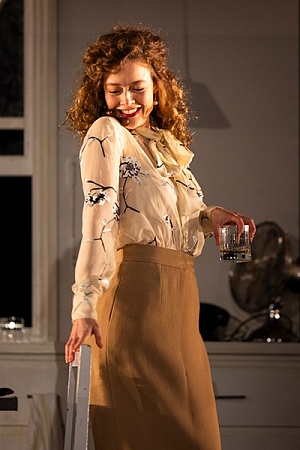Awakening (MUST and fortyfivedownstairs) ★★1/2
German playwright Frank Wedekind (1864–1918) was one of those rare artists whose work lies at the nexus of several major movements – in his case expressionism, modernism, and epic theatre – while never quite conforming to strict definitions of what those movements have come to mean. He suggests other, more famous artists to follow, like Brecht and Genet, but can also quite seriously lay claim to a movement of his own; without the sharply satirical cabaret known as Die Elf Scharfrichter in which Wedekind starred back in 1901, Christopher Isherwood would most likely not have been captivated by the kind of entertainment that led to his Berlin Stories (1945). It’s tempting to think that the decadent sexual liberation of Weimar sprang unseeded from an earlier, more repressed time, the result of a natural post-World War I euphoria, but Wedekind’s work proves that this kind of deeply unsettling anti-authoritarianism was well in play in Germany decades before.
Continue reading for only $10 per month. Subscribe and gain full access to Australian Book Review. Already a subscriber? Sign in. If you need assistance, feel free to contact us.















Leave a comment
If you are an ABR subscriber, you will need to sign in to post a comment.
If you have forgotten your sign in details, or if you receive an error message when trying to submit your comment, please email your comment (and the name of the article to which it relates) to ABR Comments. We will review your comment and, subject to approval, we will post it under your name.
Please note that all comments must be approved by ABR and comply with our Terms & Conditions.